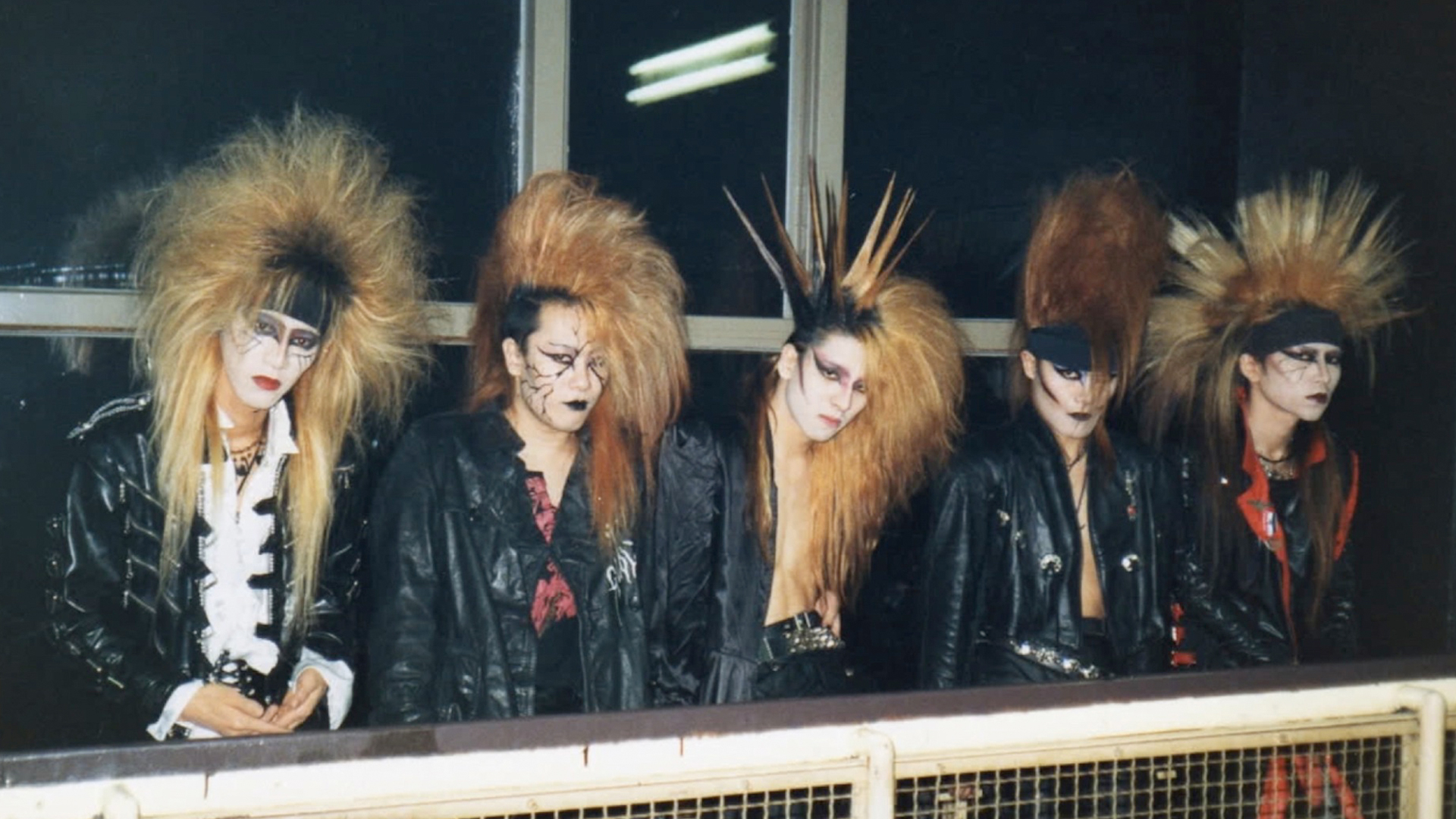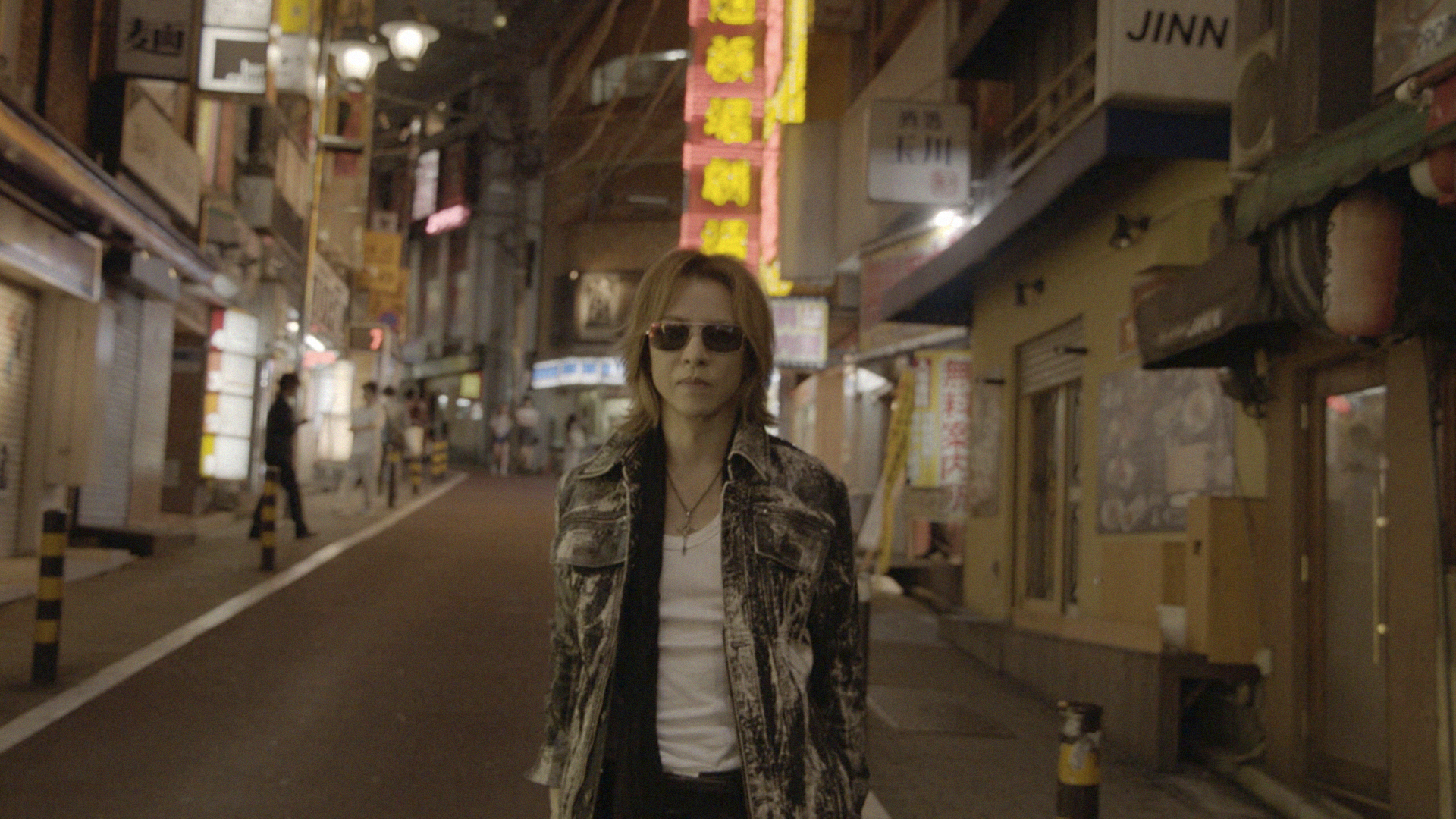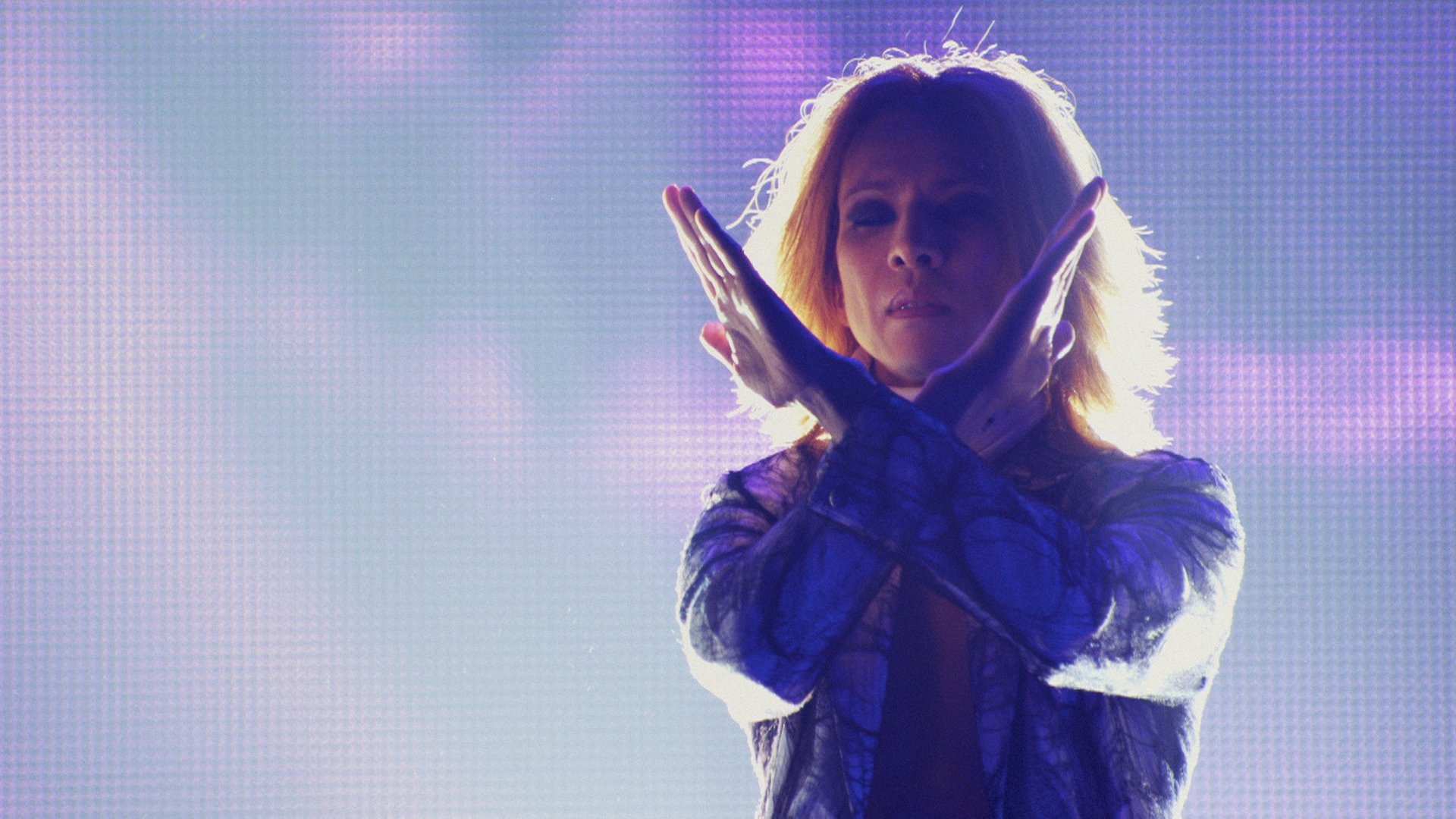Entering the world of Yoshiki Hayashi is like stepping into a medieval court. Arrive for your pre-scheduled appointment early. Wait outside in the lobby until beckoned. Of course, it’s all par for the course when you’re about to meet Japan’s most famous living rockstar.
Yoshiki, for the uninitiated, is, as he has been since 1982, the leader, drummer and a co-founder of X Japan: the country’s most successful rock group. Hailed as one of the earliest practitioners of visual kei — a sort of souped-up take on British glam rock — the band have gone from elaborately haired youths rebelling against their country’s conservative society to veritable national treasures, selling out the 55,000 seat Tokyo Dome a mind boggling 18 times and shifting over 30 million records in the process.
So that explains why everyone’s being so hushed. We’re in the penthouse suite of the five star Royal Garden Hotel, overlooking Kensington Palace, and all around frantic courtiers are busying themselves preparing for a day of UK press engagements. Yoshiki, himself, is stood by a grand piano in the centre of the room, blonde hair impressively blowdried and cheekbones positioned somewhere around the penthouse suite of his face. He’s wearing sunglasses, naturally, and a brace on his arm, the result of an intensive drumming style that often leaves him writhing around in pain at the end of a show. He’s dressed entirely in black.
“If somebody tried to write a script, a narrative for the film, they couldn’t do it. When I first watched it I was like, ‘Woah, did that really happen?’ Part of me was somehow trying to believe it was just a dream.”
We’re here to discuss We Are X, Stephen Kijak’s batshit brilliant documentary that covers the band’s story from inception to breakup in 1997, as well as their subsequent reunion a decade later. Told through the life of Yoshiki, it’s a document of the group’s history, the impact they had on Japanese society and their numerous attempts to break through the east/west barrier of rock and roll snobbery (Gene Simmons once commented that if the band had been born in America, they might have been the biggest in the world). Much more than that though, We Are X is a very human story of death and destruction; first with the suicide of Yoshiki’s father when he was 11, then the deaths of his bandmates, guitarist hide in 1998, and former bassist, Taiji in 2011.
“I was thinking, if somebody tried to write a script, a narrative for the film, they couldn’t do it,” Yoshiki says today. “When I first watched it I was like, ‘Woah, did that really happen?’ Part of me was somehow trying to believe it was just a dream.”
You see, rock and roll for Yoshiki was only ever meant to be a form of escape. He sought relief in it following his father’s death and found something transcendent in the stasis shattering power of its music. “I started listening to The Sex Pistols and GBH,” he says. “Japan was very conservative back then. When I was in high school, if your hair touched your ear they shaved your head. One day I showed up with my hair dyed red. The next day, they shaved it all off.”
You get the feeling Yoshiki deals in extremes. He’s got this extraordinary, almost self-flammatory style of drumming that sees him play so hard he requires an oxygen tank side of stage for when he inevitably collapses. He recently had surgery to insert an artificial cervical disc in his neck, a procedure he says was a long time coming following decades of intensive headbanging. “I’m almost destroying my body intentionally,” he suggests. “I don’t know if it’s the right phrase but ‘fight fire with fire’. Because I have so much pain, I try to do something to erase it. Maybe that was part of the reason I was playing harder than I should have been. I almost wanted to pass the limit somehow.”

He talks quietly about the pain of losing his father and how he can still visualise the day he found his body. To then lose two friends in similar circumstances — former bassist Taiji hanged himself following an arrest for air rage, while guitarist hide was found hanged by a towel tied to a doorknob, causing scenes of mass hysteria across Japan — is something you sense Yoshiki carries with him most keenly in his role as band leader. “I thought I would be the first to die and the guitar player would be the last one. He acted very crazy on stage but he was a very nice, reserved person, so it’s a big question,” he says (Yoshiki believes to this day that the death was accidental).
Aside from the loss of bandmates, the documentary carries an intriguing subplot involving the band’s vocalist and Yoshiki’s childhood friend, Toshi. There’s an amazing scene, early on in the film, in which a radio DJ asks Yoshiki what caused the band’s dissolution in 1997. “Were you not getting along, or were there changes in the musical climate in Japan?” he asks. “My vocalist got brainwashed,” replies Yoshiki.
“I kind of knew something was not right, but I was preoccupied with trying to break into the international market,” he explains today. “When I finally saw Toshi, I thought, ‘Oh my God, it’s too late’. He came to me and said, ‘I want to leave the band’ and I saw at that moment that he was not the Toshi I knew.”
Incredibly, Toshi had fallen in with a cult, Home of Heart, who had convinced him that the band’s music was evil. “The night X Japan broke up was not just a band ending — I was losing my friends,” Yoshiki explains. “We’d known each other since we were four years old and suddenly Toshi was there physically, but also he was not there. Ten years later, when he came back, I thought, ‘Oh my gosh, Toshi is weird. Something is not right’. But I started thinking, if he plays with us again, he might wake up some day. And he did.”
With Toshi back, the band would reunite in 1998 for three nights at the Tokyo Dome, a precursor to what would be an extended and improbably successful second chapter. “The thing was, we became bigger,” Yoshiki laughs, at how the band’s popularity only grew in their absence. A North American tour followed as did two nights at Nissan Stadium, the largest in Japan, with an estimated attendance of 140,000. Suddenly, the band were an international prospect. “We found out we had fans all over the world. It’s almost like, from a really crazy nightmare, an amazing dream came next. I couldn’t really figure out what was going on.”
“If I did everything right, maybe all the members would be alive. That’s my biggest regret. But at the same time, they are all living in my heart, even if they are not physically there.”
In the film, X Japan build up to a remarkable comeback show at New York’s Madison Square Gardens. It’s certainly proof that twenty years after they first disbanded, the group are closer to breaking down the east/west walls of rock and roll tribalism than ever before. But as our time in the court of Yokishi draws to a close, we ask whether, looking back on it all, there’s anything he might have done differently. “Um, a lot and a lot,” he replies quietly. “Especially, you know, if I did everything right, maybe all the members would be alive. That’s my biggest regret. But at the same time, they are all living in my heart, even if they are not physically there.”

“It depends on how you want to be in the future,” he continues. “You can’t change your past. If I stopped after X Japan broke up then this would just be a horror story. But we came back and started pursuing our dreams and somehow added more to the story. You know, I can never justify the members we lost, but, if we become even bigger, our past may still shine.”
You could even make a sequel, we suggest. “I would love to do that,” Yoshiki says with a smile. “I prefer to watch comedy than horror films.”
We Are X will be available on digital and on demand/VoD in early 2018.
